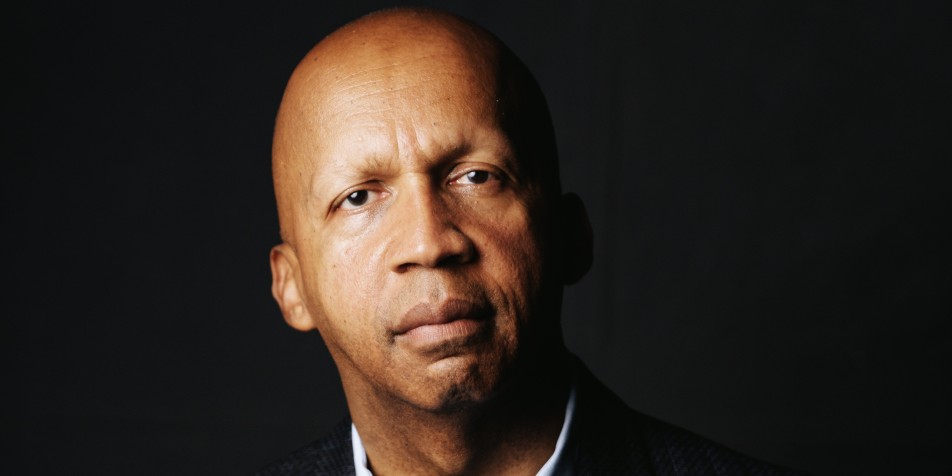Meet the Winners: Bryan Stevenson

Bryan Stevenson is the founder and Executive Director of the Montgomery, Alabama based Equal Justice Initiative. He is a multi-award-winning lawyer, author, public speaker, and advocate for justice system reform, and has argued five cases in front of the Supreme Court - winning favorable judgements in all but one. Stevenson was the lead attorney on Miller v. Alabama, a groundbreaking 2012 Supreme Court decision that found that mandatory sentences of life-without-parole for children 17 and under were unconstitutional. His 2014 memoir, Just Mercy: A Story of Justice and Redemption, which dives into his work with the wrongfully convicted Walter McMillian, has since been turned into a full-length feature film and has won several awards - including the NAACP Image Awards Outstanding Motion Picture in 2020.
Born in Milton, Delaware in 1959, Stevenson’s formative years unfolded as the Civil Rights movement began to reach a fever pitch. While his father had been born and raised in Milton, his mother was born in Philadelphia, Pennsylvania after her family moved from Virginia during the early part of what we now call the Great Migration, a seismic shift in the American population between 1910 – 1970 where some six million Black people moved out of the rural South seeking better economic and social prospects. Stevenson knows first-hand the ebb and flow of the civil rights movement and the lasting impacts of segregation; he is part of the last generation to experience segregated schooling as it existed before Brown v. Board of Education of Topeka.
During this time of unrest and uncertainty, Stevenson found solace in the dulcet tones of gospel in his local church. When he wasn’t playing sports, winning awards for public speaking, or carrying on lively debates with his brother, Stevenson could be found playing piano as he listened to the testimonials of fellow churchgoers. In his 2019 HBO documentary, True Justice, Stevenson credits his time in the Prospect A.M.E. Church as foundational to his faith and his work. It is this faith that seems to drive Stevenson’s passion and belief in a vision of justice where every person’s life is valued. In a 2019 speech to students at Penn State’s Abington campus, Stevenson offered this:
We need to get closer to people who are suffering and disfavored so we can understand their challenges and their pain. We can’t create solutions from a distance. Decide to get closer to people who are suffering, marginalized, disadvantaged, poor. Only in proximity to those who are suffering can we change the world.
His is not an empty hope, but rather one that acknowledges the need for community, and refuses to be extinguished by the oppressive tactics of systemic racism.
Stevenson would go on to receive an undergraduate education in philosophy at Eastern University before moving on to Harvard, where he graduated with both a J.D. from Harvard Law School and an M.A. in Public Policy from the John F. Kennedy School of Government in 1985. During this time, Stevenson took on an internship with Juvenile Law Center. During a 2015 lecture at Temple University, Temple’s Director of Advocacy Programs Professor Jules Epstein suggested that this relationship laid the groundwork for the type of ongoing collaboration that made work like the landmark SCOTUS decision in Miller v. Alabama possible.
Following his graduation, Stevenson joined the Southern Center for Human Rights, an organization dedicated to enforcing the civil and human rights of people in the criminal justice system in the South. Stevenson was later tapped to lead the organization’s Alabama office in 1989, which was funded by the United States Congress. When Congress eliminated funding for death penalty defense, Stevenson had to pivot, and transitioned the office into what we now know as the Equal Justice Initiative. For the last 35 years Stevenson has worked alongside his partners at the Equal Justice Initiative to provide legal representation to incarcerated adults and children, many of whom were -- or remain -- on Alabama’s death row. These individuals had previously been denied a fair trial, had inadequate representation, and/or were wrongfully convicted.
To augment the legal work of the organization, in 2018 Equal Justice Initiative established the Legacy Museum, which explores the history of America’s treatment of Black people from their wholesale kidnapping and enslavement to the systemic disenfranchisement and eruptions of domestic terrorism via lynching that followed from the end of the Civil War into the Jim Crow era. The museum draws a direct line to our present crisis of mass incarceration and seeks to upend white America’s preconceived notion that “people of color are dangerous and guilty.” Alongside the museum, Equal Justice Initiative also opened the National Memorial for Peace and Justice, the nation’s first standing tribute and solemn reminder of the 4,400 victims of “terror lynchings” from 1877 through 1950. It is difficult to overstate Stevenson’s impact on both the justice system and America’s relationship to our shared history.
Juvenile Law Center invites you to celebrate Bryan Stevenson along with fellow Leadership Prize recipients Elizabeth Scott, Laurence Steinberg, and Angel Rodriguez at the 2024 Leadership Prize, which will take place on Wednesday, May 8th, 2024 at 5:45pm ET. You can purchase tickets for the event here. Recipients of the Juvenile Law Center Leadership Prize are leading lights whose inspirational careers are beacons for future generations and whose work has substantially improved the lives of youth. Read more about our 2024 award recipients here.
